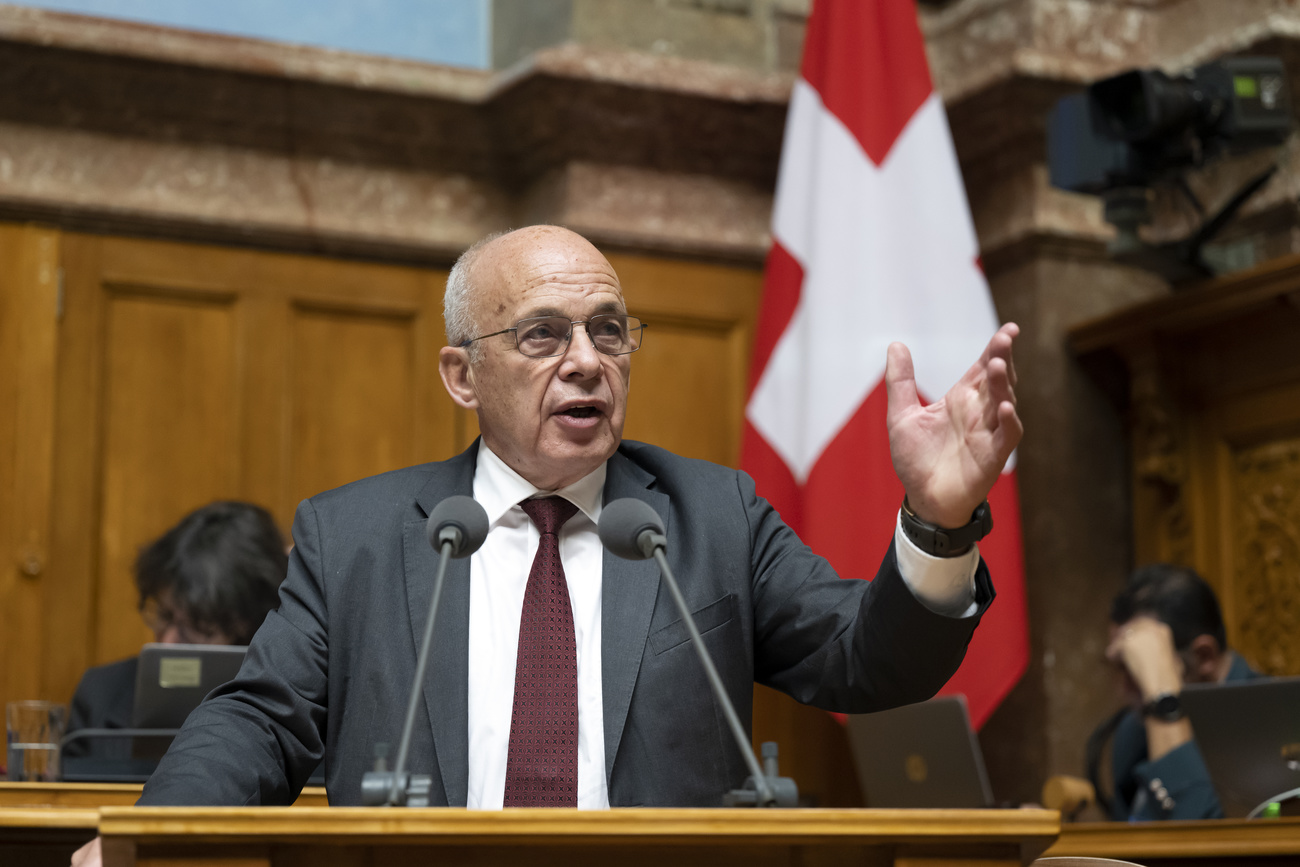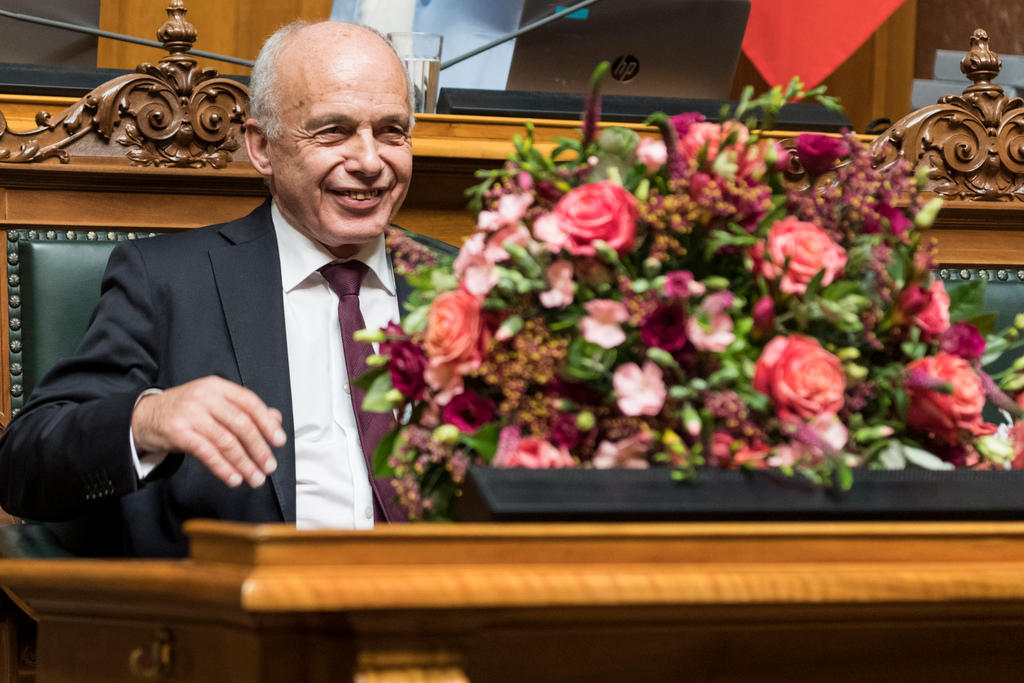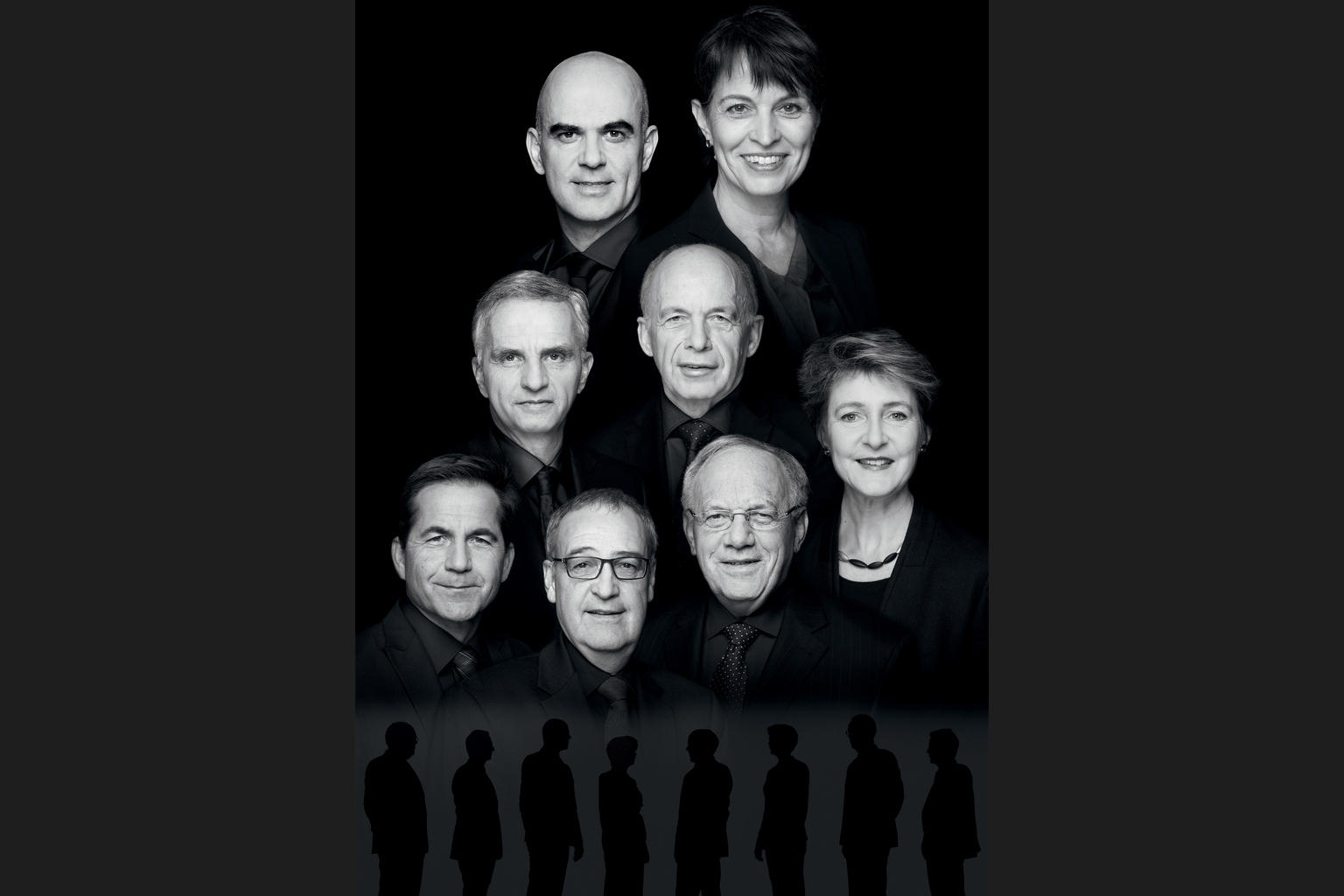
Swiss finance minister announces resignation

Switzerland's finance minister, Ueli Maurer, has announced that he is stepping down at the end of the year.
The 71-year-old cabinet minister made the announcement at a press conference in Bern on Friday.
Maurer, from the right-wing Swiss People’s Party, has been a member of Switzerland’s Federal Council (executive body) since 2009.
As a government minister, he was initially responsible for the Federal Department of Defence, Civil Protection and Sport (DDPS). Since 2016, he has been in charge of the finance ministry.
Maurer, who is the longest serving government member, told journalists he was leaving “half-smiling and half-crying”. He said he would miss an “exceptional team” but was looking forward to the future.
“I have done more than 40 years in politics, including 14 in the Federal Council, and I really enjoyed the work,” said the minister. But he said he was also looking forward to a normal private life and becoming “normal Ueli” again.
The outgoing minister said he had made the decision to step down over the summer but had only told a few people in his close circle until today’s announcement. He said no single event had led to the decision but that it was time for a change and he has “energy to do something else”.
The race to succeed him will now be on, with some speculation as to whether his party might put forward a woman to replace him in the seven-member cabinet. Parliament will elect his replacement on December 7.
An accountant from Zurich
Maurer, who hails from Zurich, was born into a farming family and later trained as an accountant. He began his political career more than 40 years ago when he was elected to the town council of Hinwil in his home canton as a member of the Swiss People’s Party.
In 1983, he made the move to the Zurich cantonal parliament, and finally took to the national stage in 1991 when he was elected to the House of Representatives.
He was president of the People’s Party from 1996-2008, a time which saw the party become the country’s strongest. Maurer had to give up the party leadership when he was elected to the Federal Council in 2009.
Maurer held the rotating Swiss presidency in 2013 and again in 2019. He raised some eyebrows in 2019 with visits to Russia, China and Saudi Arabia and meetings with their autocratic leaders.
First reactions
His party said on Friday that it “strongly regretted” his departure, and was full of praise for his management of the country’s finances. “Mr. Maurer has ensured the responsible use of taxpayers’ money through a thrifty financial policy,” said the Swiss People’s Party in a statement. It thanked Maurer for his work and wished him well for the future.
Centre and centre-right parties including the Radical Greens also hailed Maurer’s remarkable political career and staying power. But the Green Party said it was time to make the cabinet more representative and that it will decide on October 18 whether to present a candidate for Maurer’s succession. This would not be the first time it has tried (and failed) to question the so-called “magic formula” of party power-sharing in government.
In the press, left-leaning francophone newspaper Le Temps said Maurer had “often played with the limits of collegiality” in government but had nevertheless respected the institutions unlike his party’s former controversial leader Christoph Blocher. “It’s been quite a career for the man from Zurich,” it wrote. “In a career spanning 40 years, he’s become one of the country’s best known political figures.”
The Tages Anzeiger wrote in its online edition that Maurer was “one of the most versatile Swiss politicians of recent decades, unpredictable and agile, representing essentially a hard right”. It said his departure “completes the generational change at the Swiss People’s Party”.

More
Ueli Maurer – an old, new Swiss president

More
How Switzerland chooses new cabinet ministers

In compliance with the JTI standards
More: SWI swissinfo.ch certified by the Journalism Trust Initiative




























You can find an overview of ongoing debates with our journalists here . Please join us!
If you want to start a conversation about a topic raised in this article or want to report factual errors, email us at english@swissinfo.ch.